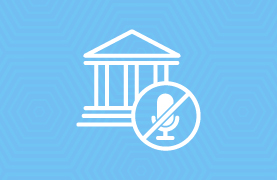Working Papers - Covid-19 pandemic and mental health in Colombia: a competitive risk analysis
The series Working Papers on Economics is published by the Office for Economic Studies at the Banco de la República (Central Bank of Colombia). The works published are provisional, and their authors are fully responsible for the opinions expressed in them, as well as for possible mistakes. The opinions expressed herein are those of the authors and do not necessarily reflect the views of Banco de la República or its Board of Directors.
The series Working Papers on Economics contributes to the dissemination and promotion of the work by researchers from the institution. On multiple occasions, these works have been the result of collaborative work with individuals from other national or international institutions. This series is indexed at Research Papers in Economics (RePEc). The opinions contained in this document are the sole responsibility of the author and do not commit Banco de la República or its Board of Directors.
Abstract
This study estimates the incidence risks of mental health disorders among survivors of the acute phase of the COVID-19 pandemic in Colombia. The pandemic led to a significant deterioration in mental health, with a notable increase in anxiety and depression disorders. Factors such as confinement, school closures, economic stress, and uncertainty contributed to this increase, particularly affecting young people and older adults. Women were also particularly impacted due to the increased burden of unpaid work and caregiving, which primarily falls on them. Using data from the Individual Service Provision Records (RIPS) of the Ministry of Health for the period 2019–2022, two cohorts were constructed: the first, a treatment cohort consisting of patients who survived the first 30 days following COVID-19 infection, and a control cohort consisting of patients with no evidence of COVID-19 infection during 2020. Both cohorts were followed longitudinally to assess the risk of being diagnosed with mental health disorders, considering sociodemographic factors such as age and sex. The analysis reveals that the risk of developing these disorders—including anxiety, depression, stress, substance use disorders, cognitive decline, and sleep disorders—is significantly higher in individuals with a history of COVID-19. Additionally, important differences in incidence were observed across age groups.
The impact of the COVID-19 pandemic on mental health underscores the need for early intervention strategies, especially for vulnerable groups such as young people, the elderly, and women, to mitigate the increase in mental and behavioral disorders in Colombia.











































